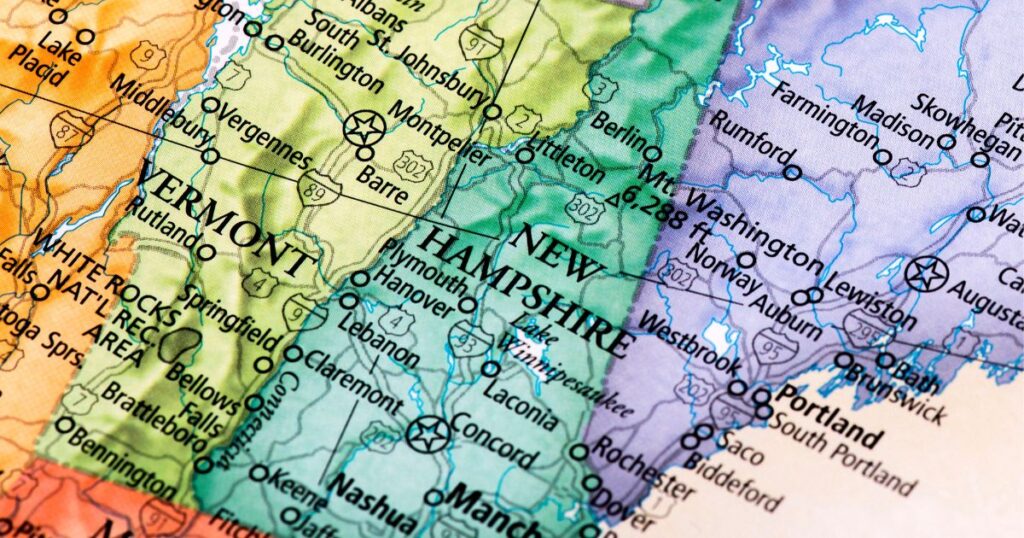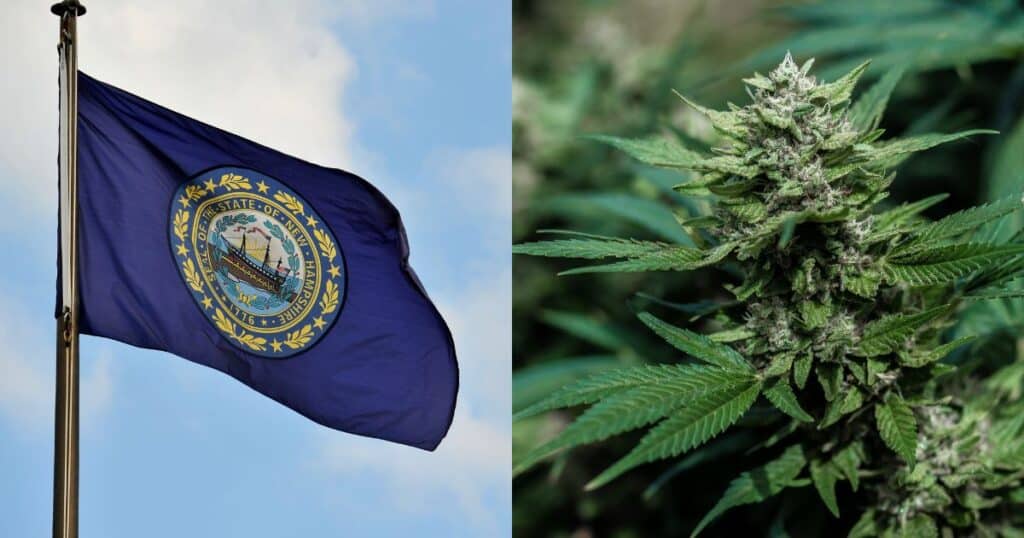The debate over marijuana legalization has been a significant political and social issue in New Hampshire. While neighboring states have progressively moved towards legalization, New Hampshire has yet to join them. The recent failure of House Bill 1633 (HB 1633) is a testament to the complexities and disagreements surrounding cannabis in the state.
The New Hampshire House recently struck down HB 1633, a bill that aimed to legalize cannabis for adults over 21 starting in 2026, but was controversial because it would give the state strict control over the industry. This decision is significant as it highlights the deep divisions between the House and the Senate on how to approach marijuana legalization.
Although there was an attempt to compromise, the House ultimately voted to table the bill, leaving New Hampshire as the only state in New England where recreational marijuana remains illegal.

HB 1633 New Hampshire Attempt at Marijuana Legalization
HB 1633 was introduced with the aim of legalizing the use of cannabis for adults aged 21 and older by 2026. The bill proposed the establishment of up to only 15 retail locations, which would be overseen by the state. The goal was to create a structured market for cannabis while ensuring state control over its distribution and sale.
The bill faced significant opposition within the House, particularly regarding the retail model endorsed by cannabis prohibitionist Governor Chris Sununu and the Senate, which passed it back in May.
Sununu’s approach favored a franchise model that would allow businesses to buy licenses to run cannabis stores, but with strict state control over store layout and advertising, it only allowed 15 retail locations for the entire state.
Many House members argued that this model would create a monopoly, stifling innovation and limiting consumer choice.
In an effort to reach a middle ground, representatives from the House and Senate attempted to insert compromises into the bill. These included increasing cannabis industry representation on a control board and making it easier for existing medical marijuana dispensaries to obtain retail licenses.
Despite these efforts, the House voted to table the bill by 178-173, as reported by the New Hampshire Bulletin, ending any possibility of it being revived in the current legislative session.
Arguments For and Arguments Against
Supporters of HB 1633 argued that the bill was a necessary step towards aligning New Hampshire with its neighboring states. They emphasized the potential economic benefits, including job creation and tax revenue.
Additionally, they highlighted the importance of regulating cannabis to ensure safety and quality control.
Opponents, however, took issue with the franchise model and the increased powers it would grant to the state’s Liquor Commission. They expressed concerns about creating an “intrusive big government program” and questioned the feasibility of rolling back such powers in the future.
Critics also pointed out that the bill’s framework did not align with free-market principles, which many felt would stifle the ever-growing cannabis industry.
The failure to pass HB 1633 means that cannabis remains illegal for recreational use for now in New Hampshire. This continues to have significant social and legal implications, particularly for marginalized communities.
Perspectives From Both Sides
According to the American Civil Liberties Union (ACLU), the ongoing criminalization disproportionately affects Black residents, leading to arrests and life-altering convictions.
Devon Chaffee, Executive Director of the ACLU of New Hampshire, said:
“Despite a unique window of opportunity and growing excitement about legalization, today, New Hampshire lawmakers failed to pass legislation to legalize marijuana.”
“Pushing legalization off yet another year makes clear that lawmakers are willing to ignore the will of their own constituents and are okay with continuing to needlessly ensnare around a thousand people — disproportionately Black people — in New Hampshire’s criminal justice system every year.”
“Marijuana legalization is not just a political squabble about the economic benefits – the war on marijuana has real-life impacts. While politicians argue, the impacts of these arrests will continue to ruin lives.”
Despite what some believe is a setback, marijuana legalization advocates remain hopeful. They argue that amending an existing law is easier than passing a new bill from scratch. This sentiment suggests that future legislative sessions may see renewed efforts to introduce and pass a more acceptable bill version.
“It’s a sad day to see legalizers kill legalization,” Karen O’Keefe, director of state policies for the Marijuana Policy Project, told Marijuana Moment in an email after the House action. “While HB 1633 was an imperfect bill, it is far easier to revise a law than to pass a bill from scratch—especially if the next governor is a prohibitionist.”

New Leadership Needed For Marijuana Legalization in New Hampshire
New Hampshire now stands as the lone holdout in New England without recreational cannabis legalization. This distinction places the state in a unique and increasingly isolated position as neighboring states like Massachusetts, Maine, Vermont, and others have embraced cannabis legalization and are reaping its economic rewards.
While some may see HB 1633’s failure as a setback for marijuana legalization in New Hampshire, it could also be seen as an opportunity to craft better legislation that serves the best interests of the state’s cannabis consumers. The debate over the franchise model versus more diverse market options highlighted significant concerns about state control and market freedom.
There is hope that the next governor will be more willing to work with the cannabis industry and pass common-sense legislation. A forward-thinking approach could pave the way for a balanced and fair market that benefits both consumers and the state.
















